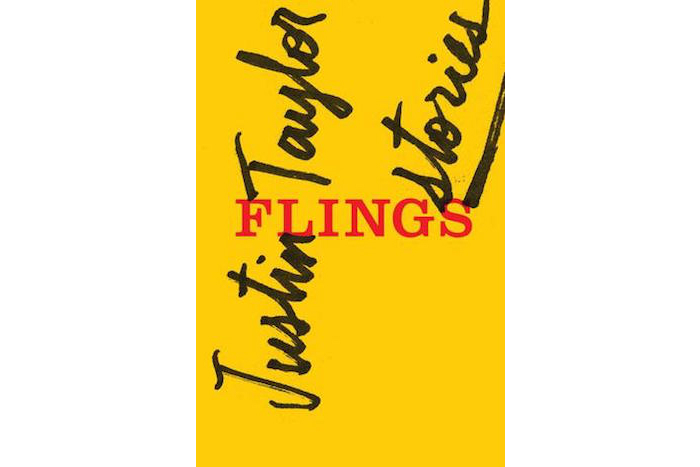By the Book: 'Flings' by Justin Taylor

From Long Island to Brooklyn to South Florida to the East Village to backwater Tennessee to Hong Kong and beyond, author Justin Taylor’s ability to evoke a strong sense of place is impressive. Flings (Harper), Taylor’s latest collection of short stories, has an eclectic itinerary that utilizes the ease with which he shifts point of view, voice, subject matter and tone. The characters of these stories are startlingly authentic: they connect, disconnect and move on, often abruptly. Open to love yet frequently unable to accept it when it’s offered, the men and women who populate the world of Flings are unsure of their past and uncertain of their future.
This remarkable collection of 12 tales—some memorably striking, but all intelligent, eccentric, funny, sad and unpredictable—incorporates rock, punk, arcane literary references (how many readers know Slavoj Žižek, the Marxist philosopher and cultural critic?) and draws effectively on European Jewish family history.
But it’s the style that stands out. Sentences swell with qualifying phrases and clauses, often concluding with unexpected observations. Or they can be short and striking, with telling images, such as in “After Ellen:” “The small stones crunching beneath his sneakers are the same color as the three o’clock sky.”
A theme that binds all the stories is life’s unequivocal sadness, anomie and absurdity. Built like stories themselves, some sentences require time (well worth it) to be (re)read: “If you asked her, Ellen would say it is a testament to her own, superlative taste in people that Danny and Rachel had the strength to exhaust their sickness for each other, then recover to achieve the chaste, sibling like love they were always meant to enjoy.”
The book’s title describes much of the behavior here—quick, instinctive, hardly momentous sexual encounters. Emotions are tossed or flung away. In a story called “Poets,” we are given insight into the protagonist’s psyche: “She knew some men out of sexual abuse. He had stumpy blond dreadlocks, refused to give up on heavy metal, and had never held a job of any kind. She did not love him, but he wasn’t as dumb as he might have been, and she appreciated his utter incompatibility with every aspect of her professional life.”
Taylor’s particularly good on desperate narcissism. From the same story: “She finished many translations but did not publish them. It would be too easy and they’d garner her far too much acclaim. It was still her own verse she loved. She sought a poetry press, small, earnest, and middling enough that she might be its star.” The protagonist finally does give a poetry reading “to an audience of seven, then [goes] home.” Later, after allowing herself to be picked up by a graduate student, she undresses quickly: “‘Don’t you make me regret this,’ she said in a flat, serious voice, leaning low over his lap and unzipping him, and he promised that he wouldn’t, and he didn’t, and so neither did she.”
The stories tend to cut off rather than conclude, failing to reach an inevitable resolution derived from character or plot. But all of them evince a smart, critical, sometimes compassionate—sometimes satiric—take on fads or fancies to which Taylor’s unmoored characters yield, such as in “Sungold,” one of the most bizarre and inventive stories in the collection, which is told by a man in a mushroom suit who works in a fast food joint. “The new menu’s littered with the word ‘artisanal’ instead of the word ‘organic,’” but “it’s mostly the same food as before, only served on ceramic plates the size of manhole covers at triple the price.” Writing workshop participants take note—Taylor is someone to watch.



